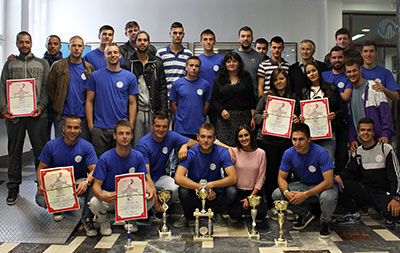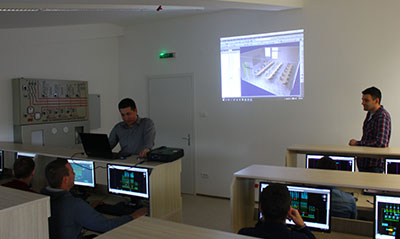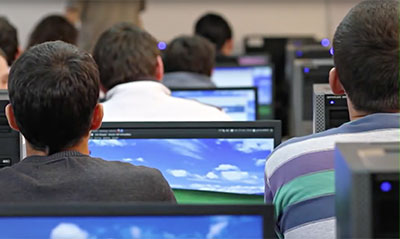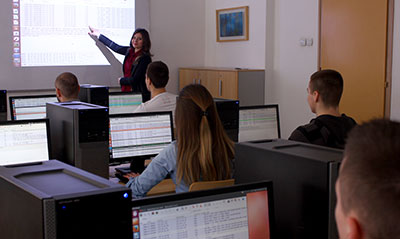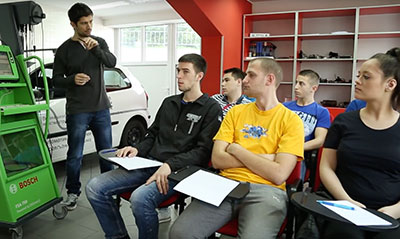Why ATUSS?
Academy of Technical and Art Applied Studies (ATUSS) is merger of five HEIs: Department School of Electrical and Computer Engineering of Applied Studies, School of Applied Studies for Information and Communication Technologies, Department School of Civil Engineering and Geodesy, School of Railroad Transport and Textile School for Design, Technology and Management, officially in 2019. ATUSS has recognised internationalization of its activities as one of the most promising ways to further development. The Strategy of Internationalization 2021-2026 and its adjacent document, the Action Plan for the Implementation of the Strategy of Internationalization 2021-2026 are both umbrella documents defining the main objectives ATUSS should meet in the domain of internationalization. ATUSS has made sure a strong normative framework is set to support and regulate processes related to international cooperation. Apart from the Strategy and the Action Plan, ATUSS has also introduced the Erasmus Policy Statement, Rule Book on International Mobility, Rules and Guidelines for Selection of Students and Employees for International Mobility and Language Policy, as well as all forms required for successful realization of mobility projects.
ATUSS is striving to become an institution of higher education, research and development, which, in international terms, is a bearer of activities pertaining to the design of new, added, social value, as envisioned by the Erasmus+ programme. Apart from its main goal of providing quality education and fostering globally competitive experts, ATUSS is putting particular emphasis on two-way mobility of students and staff, as well as mutual cooperation in projects, research and development with both programme and partner countries, as regular and indispensable processes at ATUSS. ATUSS aspires to achieve this vision by creating strong and productive ties with relevant partners at the international level, as well insisting on the quality of educational activities for both local and foreign students. Thus far, ATUSS has mostly cooperated with European countries in its vicinity, but is looking into expanding its network of partners and growing relations with HEIs beyond the European continent (partner countries from Asia, South-Mediterranean/North Africa, etc.). Based on mutual interest, objectives and quality of work, ATUSS shall pursue KA1, KA2 and Jean Monnet multilateral projects with international partners, in the years to come, with special focus on inclusive practices, community service and environmentalism, but also the digitalization of administrative procedures pertaining to mobility, through the Erasmus Without Paper initiative.
Thus far, individual Departments of ATUSS have taken part in one Tempus project (Tempus Joint Project - Curricular Reform) as a coordinator, two Tempus projects (Tempus Joint Project - Higher Education and Society) as a partner and four Erasmus+ projects (Action Type: Capacity Building in Higher Education (Department School of Electrical and Computer Engineering) and Strategic Partnerships for Vocational Education and Training (Department Textile School of Design, Technology and Management)), also as a partner. Department School of Electrical and Computer Engineering is currently a partner in two international Erasmus+ projects, KA2: Cooperation for Innovation and Exchange of Good Practices and Capacity Building in Higher Education). For the 2021 call, ATUSS in working on KA2: Alliances for Innovation with the Faculty of Agriculture, University of Belgrade and five foreign partners, KA2: Centres of Vocational Excellence with Academia from Maribor, Slovenia, and Jean Monnet/KA137 projects with North Caucasus Federal University from Stavropol, Russia.
The main reason behind future investment of human and financial resources in international projects is development, at all levels, of ATUSS itself and of its students and staff. By being professionally developed and making permanent progress, ATUSS intends to keep providing quality education to its students and contributing to overall enhancement of the education system. It is important for ATUSS not only to modernize its lessons and study programmes, elevate practical skills of students, develop teaching skills of teaching staff and management skills of non-teaching staff, through international cooperation, but also to raise awareness of the significance of EU programmes and increase the feeling of European identity. High standards and endless possibilities for international cooperation ATUSS aspires to realize are one of the main reasons why Erasmus+ programme is the main international programme ATUSS wishes to take part in as a HEI.
